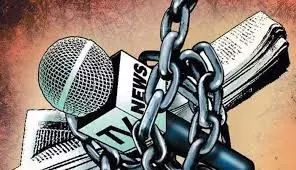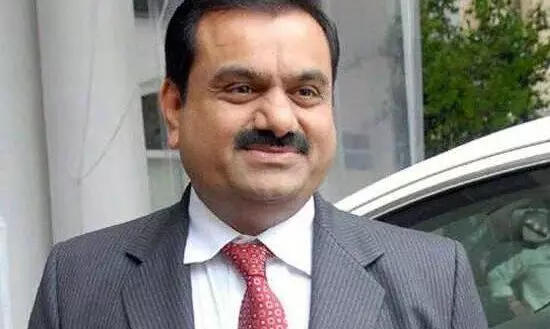
Mulling media muzzling
text_fieldsAs the tussle between the Kerala government and the governor is raging at its peak, the state administration has backtracked on introducing its proposed media control bill for the time being. This retreat is clearly just a tactical step borne out of the fear of backlash if such a media muzzling law is introduced at a time while protests are raging against the governor, including against his order of 'get out' to two mediapersons at his last presser. There is also a perception that the law needs clarification and more changes to plug all loopholes. Going by this, the bill can be brought back with more restrictions at any time if a more conducive situation emerges.
This is not the first time that the Pinarayi Vijayan government in Kerala has come up with such a bill to control content. Two years ago, the government was prepared with the same experiment. That move was by amending Act 118A of the Police Act. The bill, which came as an ordinance, was withdrawn soon thereafter through another ordinance as the criticism spread all over the state. The amendment was framed in such a way that under the pretext of preventing cyber-attacks , it could be used to penalise the media that was not palatable to the regime. The current move is to amend Section 292 of the IPC Act with a new provision that makes punishable any creation or publication of content with the aim of insulting, threatening or defaming someone. Under these provisions, which have far-reaching implications, anyone who finds the content insulting or defamatory can file a complaint and push the matter through legal action. That is, giving or broadcasting unfavorable news or even uploading a satirical troll video, can constitute a major offence under the law. They can attract punishment of imprisonment for two years or fine or both. If one repeats the offence, the punishment will increase again. It is said that this is to control defamatory content on social media, but no one need teach law-enforcers how to bend or misuse the law. We already have before us the example of the application of laws such as the UAPA.
The trend of declaring the media as nuisance at times when the government feels disturbed is not new or of recent origin. We are currently facing censorship-repression moves of a scale bigger than witnessed during the Emergency. In this matter, there is no difference between the Centre and states. Today, the most deadly anti-media moves are being carried out by those who had vehemently opposed the press muzzling bill prepared during Rajiv Gandhi's regime. At the national level, most of the media in the country are being subjugated one by one by the government. And those who refuse to play ball are made to face raid, case and action. The latest example is the vendetta against 'The Wire' in a recent complaint filed by a BJP leader.
Those in power and their loyalists are always averse to untruths. The media that expose the failings of the ruling party will be very popular with the opposition. However, when they become the ruling side, they also turn anti-media. The Chief Minister who tells reporters to keep away, the Leader of the Opposition who says that he does not expel mediamen only thanks to his politeness, and the Governor who says 'get out' all reflect the same anti-media mentality. It is extremely dangerous that the Left government is also imitating the moves of the communal right to turn the media and journalists into sycophants who do not ask questions against ruling masters. Notably, the government has not decided to entirely drop the media muzzling bill, but only to hold it for the time being. It only means that they are waiting for the right opportunity. Freedom of the press is imperative for the existence of a democratic society and is also considered as a natural supplement to the civil liberties and freedom of expression guaranteed by the Constitution. Any law to regulate, restrain, or break them has to be resisted tooth and tail, regardless of by whom the move is made.
























